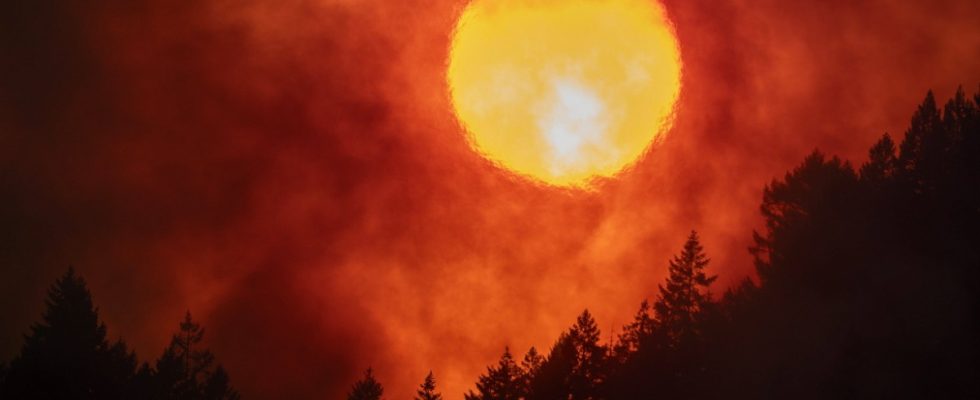The Climate Friday summer break is over – but this summer of extremes doesn’t seem to want to end. In the hottest global summer since records began, there were not only countless temperature records, for example in and around the Mediterranean. It also burned extremely, rained extremely and stormed extremely. Two pictures from Switzerland particularly stuck with me: One shows Zermatt on August 24th, in bright sunshine and 31.2 degrees Celsius (also a new record). The other shows the same city view, just four days later – a snow-covered winter landscape at 0.5 degrees Celsius.
Have there always been storms and hot summers? Anyone who is often confronted with this objection may find this comment (SZ Plus) helpful, in which my colleague Christoph von Eichhorn gets to the heart of the connection with the climate crisis.
With all these extremes, it’s easy to lose sight of what’s happening with climate protection. In Kenya, for example, the states of Africa came together for the first African climate summit (SZ Plus). The countries that contribute little to the climate crisis and at the same time suffer particularly heavily from it do not all share the same interests. Nevertheless, they agreed, among other things, to promote the expansion of renewable energies. This will not work without money from other, wealthier countries. The fact that Germany reached its goal of paying six billion euros in international climate aid early and even exceeded it is at least a good sign. Germany is also largely keeping its financial commitments to African states – unlike the USA, for example.
Unfortunately, that doesn’t change the fact that German climate policy is still inadequate overall. as climate researcher Niklas Höhne explains in an interview (SZ Plus). Dealing with climate news is an ebb and flow, like this summer in Zermatt. Personally, it helps me to keep reminding myself: Yes, it is bad and it will almost certainly get worse, but we are not heading straight towards the apocalypse. Although not enough has happened in recent years, a lot has happened. And even now we can still significantly mitigate climate change and its consequences in the long term.
(This text comes from the weekly Newsletter Climate Friday you here free of charge can order.)

